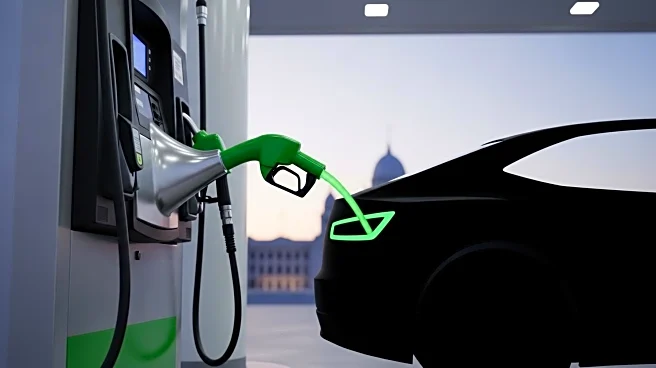What's Happening?
The California Legislature has passed a bill authorizing the immediate sale of E15, a gasoline blend containing 15% ethanol. This measure, known as Assembly Bill 30, now awaits the signature of Governor Gavin Newsom. Despite the legislative approval, Newsom's administration has expressed strong opposition, citing concerns over the timing of the bill in relation to a pending California Air Resources Board (CARB) regulatory review. The Department of Finance has labeled the bill as unnecessary, pointing to the $2.3 million allocated for CARB to implement new E15 standards, which will not be available until the review is complete. The administration is also concerned about the financial impact on the California Department of Food and Agriculture, which would need to raise motor vehicle fees to cover new costs associated with enforcing petroleum product quality standards. The bill's urgency statute means it would take effect immediately upon the governor's signature.
Why It's Important?
The decision on E15 fuel sales in California holds significant implications for both economic and environmental stakeholders. If approved, the bill could lead to cost savings for consumers, with studies suggesting potential savings of 20 cents per gallon, amounting to $2.7 billion statewide. This is particularly relevant as Californians face some of the highest gas prices in the nation. Additionally, the introduction of E15 could reduce tailpipe pollutants, contributing to improved air quality. Ethanol producers and corn growers support the bill, highlighting its economic and environmental benefits. However, the administration's concerns about increased state spending and regulatory integrity pose challenges. A veto from Newsom could disappoint Democrats and biofuel producers, while approval could strain the state's budget.
What's Next?
Governor Newsom has until October 12 to make a decision on the bill. If he vetoes it, it could lead to backlash from both political allies and industry stakeholders. Conversely, signing the bill could expedite the availability of E15 in California, aligning the state with the other 49 states that already allow the blend. The ongoing CARB review process, which includes evaluating the environmental impacts of E15, remains a critical factor. Newsom's decision will likely influence future legislative and regulatory actions related to biofuels in California.











